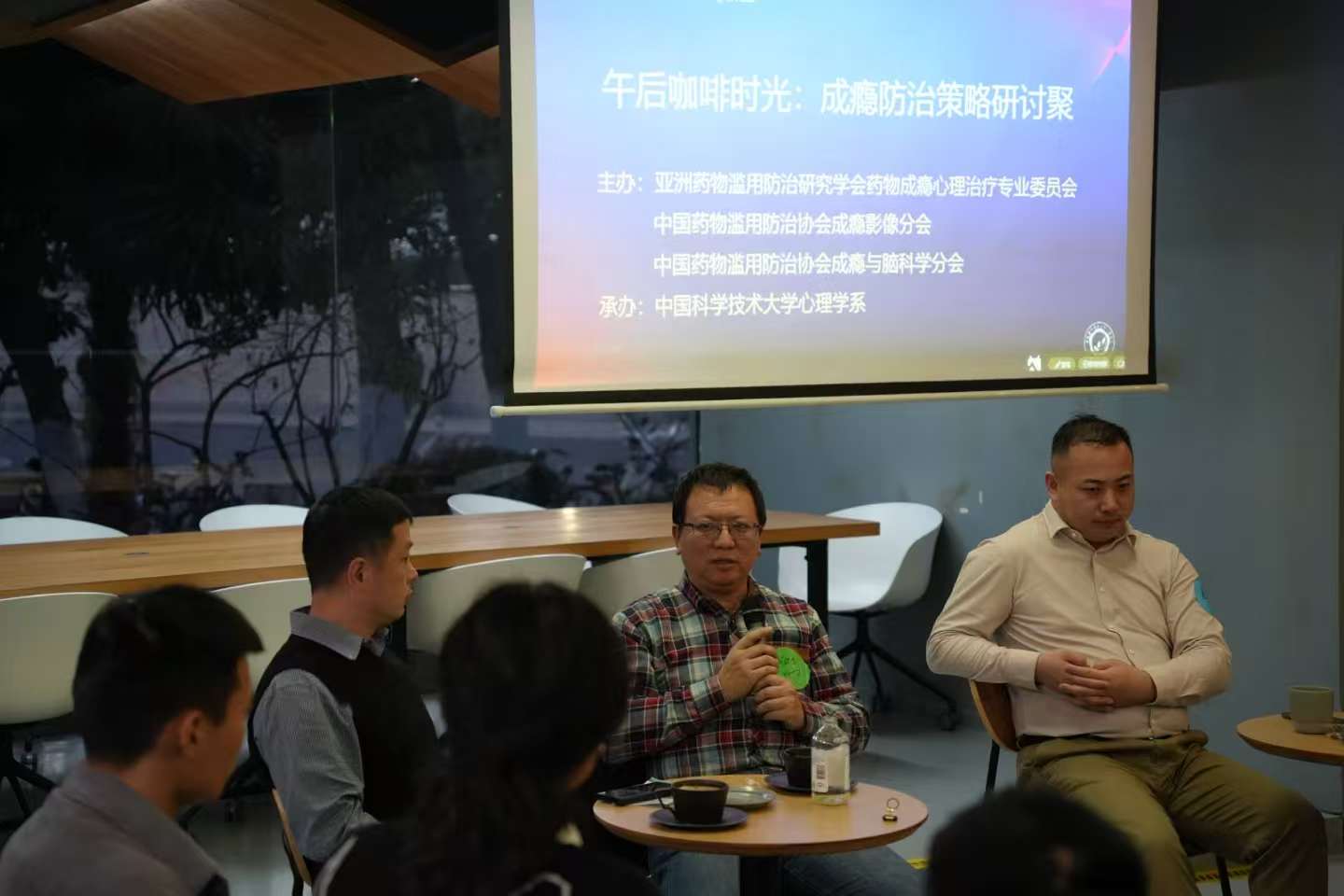On the afternoon of November 30, 2024, the Department of Psychology at the University of Science and Technology of China (USTC) successfully hosted the event titled “In-Depth Visit to USTC by the Asian Association for Substance Abuse Research: Interdisciplinary Dialogue on Addiction Prevention and Treatment.” The event brought together professionals from universities, hospitals, frontline rehabilitation centers, and the judicial system to engage in comprehensive discussions on addiction prevention and treatment. Aimed at fostering academic exchange and collaboration, the initiative seeks to contribute to addressing the global challenge of substance addiction.

Group Photo in Front of the School of Humanities, University of Science and Technology of China
The participants first visited the research facilities of the Department of Psychology at the University of Science and Technology of China (USTC), gaining an in-depth understanding of the department’s development and research achievements. The USTC Department of Psychology has long been dedicated to research in the field of addiction and has made remarkable progress. Notably, Professor Zhang Xiaochu developed a non-invasive deep transcranial electrical stimulation device with independent intellectual property rights, which has demonstrated significant value in addiction intervention. This device not only provides a new treatment option for individuals with addiction but also underscores the department’s leading position in addiction research. Participants expressed that the visit deepened their appreciation of USTC’s research strengths and contributions in the field of addiction science.

Visitors Tour the Research Facilities of the Department of Psychology
The focus of the event then shifted to one of USTC’s iconic landmarks—the USTC1958 Café. More than just a place for faculty and students to relax, the café also serves as an important venue for academic exchange. Inside the café, the discussion session was moderated by Dr. Lü Xinyou, Secretary-General of the Psychotherapy Committee of the Asian Association for Substance Abuse Research and a researcher at the Department of Psychology at USTC. The event began with opening remarks by Professor Zhang Xiaochu, Chair of the Psychotherapy Committee and Deputy Director of the Department of Psychology at USTC. Professor Zhang warmly welcomed the attendees and briefly introduced the background and significance of the event. He emphasized that addiction prevention and treatment is a long-term and challenging endeavor that requires the joint efforts and collaboration of all sectors.


Lively Discussion at the Event
During the subsequent discussion session, Professor Zhu Yingjie from the Shenzhen Institutes of Advanced Technology, Chinese Academy of Sciences, and Professor Yuan Kai from Xidian University delivered insightful remarks, sharing the latest research findings and cutting-edge developments in addiction prevention and treatment. Frontline social workers and clinical experts from rehabilitation centers also actively participated, highlighting the real-world challenges they face in daily practice and seeking more effective solutions. The discussion was vibrant and open, with participants exchanging views on the latest advances in addiction prevention and treatment. Professionals from diverse backgrounds contributed perspectives and experiences from their respective fields, broadening the vision and approaches for addressing addiction-related issues.

Group Photo of the Event
The successful hosting of this event not only significantly promoted academic exchange and collaboration in the field of addiction prevention and treatment, but also provided an excellent opportunity for the Department of Psychology at USTC to strengthen cooperation with various sectors. Looking ahead, the department will continue to leverage its platform advantages and work hand in hand with partners to inject new momentum and vitality into addressing the global challenge of substance addiction. It also looks forward to welcoming more scholars and experts to join the research and practice of addiction prevention and treatment, contributing collectively to the health and harmonious development of human society.
